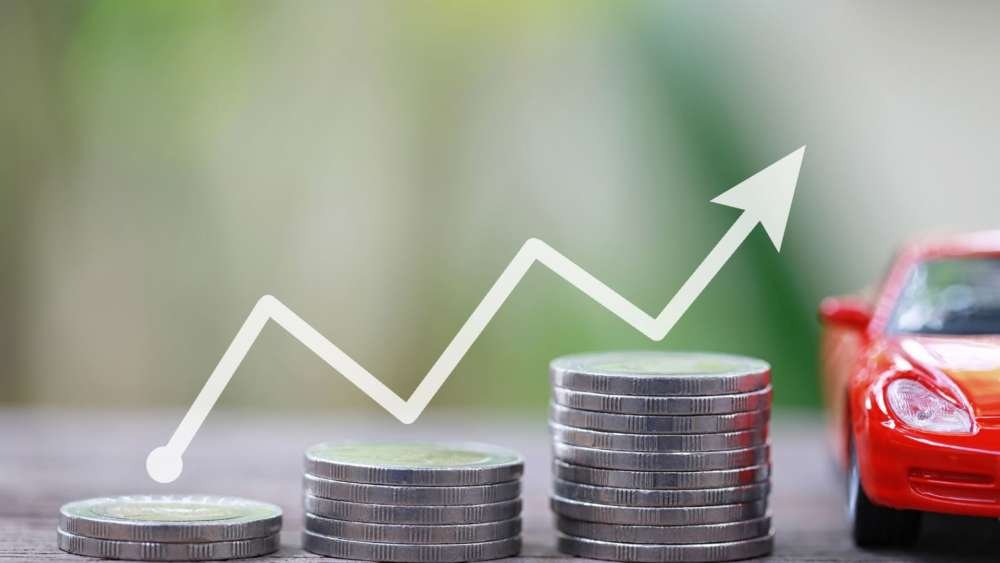Igniting investment into the UK automotive industry
Published by linker 5
Posted on July 18, 2020
4 min readLast updated: January 21, 2026

Published by linker 5
Posted on July 18, 2020
4 min readLast updated: January 21, 2026

By Kevin Brundish, CEO of cell manufacturer AMTE Power, discusses the scope for investment in lithium-ion battery technology and production.
This year, electric vehicles are in the spotlight and set for mainstream success, with available models set to rise 75 per cent[1]. The lithium-ion battery holds the key to the transition away from fossil fuel dependence, and is the vehicle’s most valuable component. Heavy taxes and fines for carmakers who produce high emission vehicles, and government subsidies gathering pace, are driving its acceleration and progression. Battery Electric Vehicles (BEVs) are projected to make up twenty per cent of all car sales by 2026 – an unprecedented rise from just 3.4 per cent in 2019[2].
This is paving the way for the lithium-ion battery market to be worth £5 billion by 2025[3]. Not only presenting a worthwhile investment opportunity in itself, but the positive knock-on effects to the wider supply chain and economy with dependent industries such as automotive, recycling and charging points, are vast. However, this paradigm shift will require an overhaul of the country’s infrastructure and the reshoring of battery production. Unlike other economies built on capital-intensive investment industries, the UK’s economic mind-set and expertise in capital markets is not geared up around scalable manufacturing or resource production – leaving China in a prime position to dominate the market. Former foreign secretary, William Hague, has recently highlighted the need to avoid supply chains that are dependent on China, and for the UK to move for independence of supply for future technology and resources[4]. Government-backed research body the Faraday Institution, has also warned that a failure to invest in electric car battery production could cost the UK 105,000 automotive jobs over the next ten years[5], signalling the extent of the industry’s economic impact.
The momentum of electrification
Electric car budgets were boosted earlier this year, after a £1 billion investment was pledged towards the Research and Development (R&D) of green automotive technologies. Designated to bolster the country’s infrastructure, and provide a stepping stone towards building gigafactories in the UK, this begins to lay the foundations that will power the next generation of drivers. The elimination of benefit-in-kind taxation for electric and low-emission company cars until April 2021, adds pace to their adoption and towards meeting Road to Zero targets – in which all new cars sold in the UK from 2035 onwards will be zero emissions.
As the number of electric cars increases, peak electricity demands and the subsequent need for a fast-charging infrastructure must also be met. The National Grid predicts EVs will create an extra 18GW of demand by 2050 – almost triple today’s peak demand for electricity[6]. Lithium-ion batteries, with a long shelf life and designed for multiple recharges, will be a critical component to support this surge. Fluctuating renewable energy sources such as tidal, solar and wind power also require a huge amount of energy storage – another market set to grow, with the support of lithium-ion cells.
Bringing the investment ecosystem back home
The transition to electrification will see demand for lithium-ion batteries grow 19-fold by 2030[7]. Currently, the production of battery cells has long been dominated by large-scale Original Equipment Manufacturers (OEMs) based in the Far East. China is home to almost three quarters (73%) of global lithium cell manufacturing capacity[8], highlighting a potential for over-reliance on foreign imports – this over dominance has been brought into sharper focus by the Covid-19 crisis. Both costly and unstable for the British supply chain and the economy as a whole, particularly in times of resource scarcity. Responding to this market imbalance, William Hague is advocating a new “hard-headed” approach to China in the West, urging governments to examine Chinese dominance over these emerging technologies.
With a heritage in battery expertise and niche manufacturers, the UK has the knowledge, capabilities and core elements to address this demand. Now, investment is needed to support the EV manufacturing industry to realise these benefits and scale production.
Looking ahead to the future
As battery technology gains momentum, industrial users are looking to purchase onshore, aiming to reduce carbon footprint and minimise reliance on unpredictable offshore supply chains.
With adequate investment into onshore companies involved in lithium-ion cell production, this manufacturing capability will help the UK become a competitive and attractive place to design, build, and sell electric vehicles – whilst developing vast quantities of low carbon jobs, feeding into a more stable, green economy.
[1] https://www.theguardian.com/environment/2019/dec/25/2020-set-to-be-year-of-the-electric-car-say-industry-analysts
[2] https://www2.deloitte.com/content/dam/Deloitte/uk/Documents/manufacturing/deloitte-uk-battery-electric-vehicles.pdf
[3] https://www.globenewswire.com/news-release/2020/01/28/1975953/0/en/50-Billion-Consumer-Batteries-Market-Analysis-to-2025-Consumer-IoT-Smart-Homes-and-Home-Automation-Boosts-Deeper-Engagement-with-Digital-Technologies-Driving-the-Consumer-Batteries.html
[4] https://www.thetimes.co.uk/article/we-can-t-rely-on-china-if-it-won-t-play-by-our-rules-warns-hague-529lzjmg3
[5] https://www.theguardian.com/business/2020/mar/15/not-investing-in-electric-car-battery-production-could-cost-uk-105000-jobs-study
[6] https://www.nationalgrid.com/group/case-studies/electric-dreams-future-evs
[7] http://www.iaea-online.org/news/2019/12/ev-demand-to-exceed-battery-stock.aspx
[8] https://www.forbes.com/sites/rrapier/2019/08/04/why-china-is-dominating-lithium-ion-battery-production/#8f1bf5637867
Explore more articles in the Investing category











